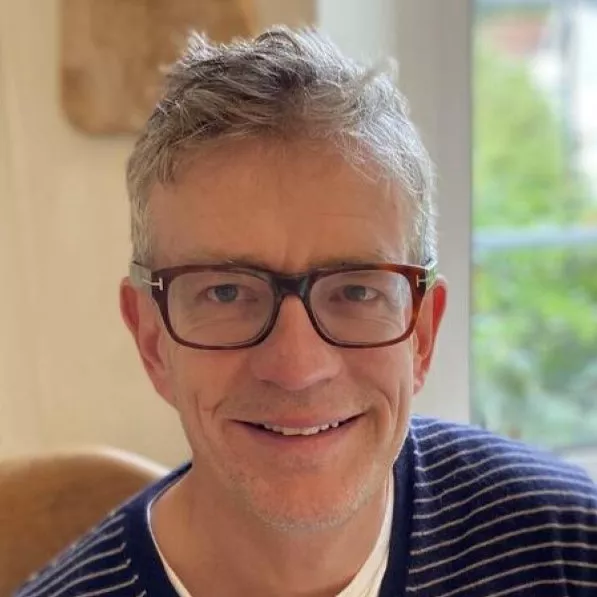
Omwana taba womoi
Over the years I’ve heard “it takes a village to raise a child” many times. I wanted to understand where this saying originated from. Although the exact origin of this saying is yet to be pinpointed, it is widely believed to be the embodiment of various African proverbs, one of which may be ‘Omwana taba womoi’1. This proverb shares the perspective that an entire community of people are required to provide a safe and healthy environment for a child to grow, thrive and reach their potential.
This community in the UK fortunately includes the NHS and in my October blog, Care by the right people, in the right place at the right time, I focused on the importance of collaboration. I highlighted the value of different perspectives and energies to foster creativity and innovation. This equally applies to the role of Officer for Wales.
When I came into post this May, I had already had a peek into the extent of connections across children’s services. And I wondered how the Officer role can possibly seek to influence and ensure children and young people are at the centre of policy making.
Since then, I’ve been meeting with members of Public Health Wales and of the new NHS Executive, civil servants, Welsh Government Ministers and charities. I’ve begun to pick up the many key themes and seek opinions from our team and from you about where to invest time and effort.
Sometimes this is easy - most of the right people are already in the room such as at the recent series of meetings of the Ministerial Wellbeing Partnership Taskforce. However, as more and more opportunities emerge (nearly 30 policy areas and counting), from engaging with the critical First 1,000 Days programme and perinatal workforce education, to addressing disabilities in school, child poverty, to the mental health crisis and nutritional standards, to e-cigarettes and smoking, the need to expand and draw on other’s expertise is ever apparent.
So, it seems only fitting to better introduce you to our recently appointed RCPCH Wales Deputy Officers and Health Board Integration Lead.
Between us we have over a century of paediatric experience and we hope to use the drive that comes with this knowledge and expertise to put children and young people at the centre of policy making and expand the voice of RCPCH Wales.
Dr Dana Beasley - Deputy Officer for Wales
"Hello, my name is Dana. I’m a general paediatrician in Swansea Bay University Health Board and I’m also the local link for paediatric rheumatology.
"During my training and work here in Wales I have met and worked with so many dedicated, inspiring colleagues across Child Health and all of you make a huge difference to individual patient’s lives and their families. But, overall health and wellbeing of children and young people in Wales is declining. So, when the opportunity arose to become RCPCH Deputy Officer for Wales I tried to shake off my imposter syndrome and successfully applied.
"Within this role I’m hoping to highlight the importance of the “First 1,000 days” and primary prevention and have already met with colleagues in Public Health Wales. I’m also passionate about healthy food and will be campaigning to tackle the hugely worrying statistics of childhood obesity as well as increase in children who are underweight.
"Finally, I will be supporting the RCPCH Wales team with the incredibly important work of addressing child poverty and health inequalities."
Dr Malcolm Gajrai – Deputy Officer for Wales
"Hi, I’m Malcolm and some of you will know I was a consultant in Paediatric Intensive Care in Cardiff for 23 years.
"I left clinical practice at the end of September 2023 but remain Director of Quality Management in the Medical Deanery in Health Education and Improvement Wales (HEIW), where I continue to drive the high quality and standards of postgraduate training in Wales, for all trainees, including those in Paediatrics.
"The RCPCH Deputy Officer for Wales role really appealed to me as I wanted to maintain my credentials as a paediatrician, advocating for the specialty as well as for children and their health and I was drawn to the enthusiasm and approach of RCPCH Wales. I also believe (hope!) I will have more time to ensure I can do this important role justice.
"My main areas of responsibility are workforce development and trainee engagement: For the future, by the future and I look forward to working with the next generation of paediatricians to advocate and improve child health in Wales."
Dr Saurabh Patwardhan – RCPCH Wales Health Board Integration Lead
"Hi, I’m Saurabh. I’ve worked in Wales for 15 years in which time I’ve worked alongside brilliant colleagues across child health to meet the needs of children and young people.
"During the pandemic, we set a variety of good practice examples to improve the services for children locally, but we often continue to work in silos. This is something I want to change in my new role. We all face similar challenges but by working together, developing ideas, clinical expertise and local knowledge, we have the opportunity to create a positive change to child health.
"We must aim for an inclusive Welsh paediatric community who collaborate and look after each other. My ethos as the RCPCH Wales Health Board Integration Lead is to co-produce pathways and share good practice across Wales. This includes sharing tools, sources of local and regional data and case studies.
"Going forward, I hope to liaise with clinicians to understand current challenges, so that RCPCH Wales can help improve child health locally but also nationally across Wales by working together."
See more about our work in Wales
- 1It Takes a Village to Raise a Child: Understanding and Expanding the Concept of the “Village” - PMC (nih.gov)









